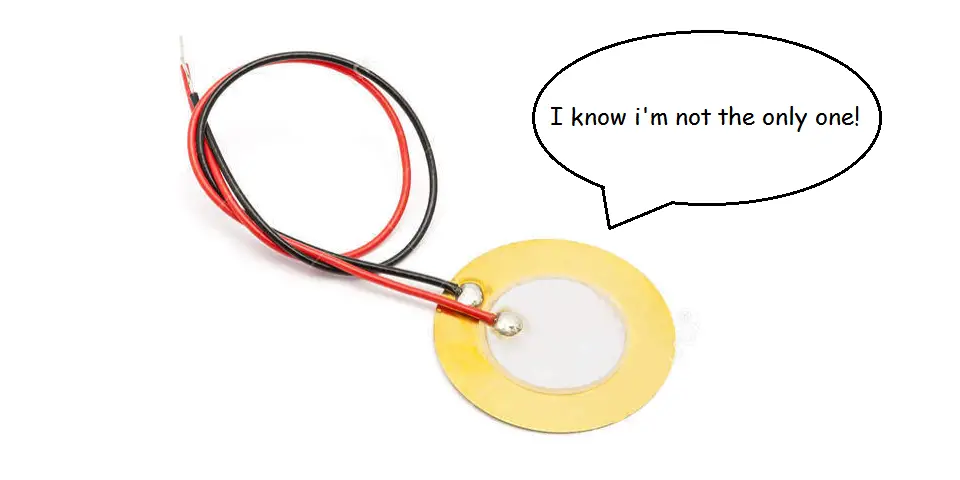What is a piezoelectric sensor
Sensors come in many shapes, sizes, and functionalities. If you ever needed to measure force, a Piezoelectric Sensor is the perfect sensor for the job. This sensor works based on the piezoelectric effect which measures changes in force, pressure, or acceleration by converting it to an electrical charge.
They are very sensitive in nature, and are also quite small making them perfect for many applications where force, pressure and acceleration needs to be measured.
Some of these applications include;
- Musical greeting cards
- Electronic musical instruments (Electronic Drumkit)
- Guitar pickups
- Alarm clocks
- Automotive car key fobs
- Robotics
- Wearable arts
What are the different types of piezoelectric sensor
There are many different types of piezoelectric sensor which include;
- Piezoelectric Force sensor
- Piezoelectric Pressure sensor
- Piezoelectric Acceleration sensor
- Piezoelectric Polymer pressure sensor
Piezoelectric sensor type #1: Piezoelectric Force and Pressure sensor
The Piezoelectric force and pressure sensor have a similar working principle and construction. These types of sensor measure force and pressure by using piezoelectric elements which are usually quartz crystals. By using quartz crystals as the piezoelectric element, this type of sensor gains high rigidity, a wide measurement range, has high linearity and stability.
An electric charge (voltage) is generated across the crystals when the piezoelectric sensor is subject to a force or pressure. The force can be a physical touch, or changes in pressure which do necessarily require physical contact with the sensor (i.e, changes in pressure within liquid and gas)
Piezoelectric sensor type #2 Piezoelectric Acceleration Sensor
The next type of piezoelectric sensor on the list is the Piezoelectric Acceleration Sensor, also known as Piezoelectric accelerometers. This variation is often used to measure vibration. There are many vibration sensors available, however, the piezoelectric acceleration sensor offers better all round characteristics such as a wide frequency and dynamic ranges, while being robust and having a long lifespan.
Piezoelectric acceleration sensors achieve their longevity and robustness thanks to no moving parts. They are also self-generating which means they do not require a power supply. Piezoelectric acceleration sensors are available in two variations; Compression and Shear.
The compression type exerts a compressive force of the piezoelectric element, while the shear type exerts a shear force.
Piezoelectric sensor type #3 Piezoelectric Polymer Pressure Sensor
Last up is the Piezoelectric Polymer Pressure Sensor. As the name suggests, this type of piezoelectric has the job of detecting changes in pressure. However, unlike the previous piezoelectric pressure sensor (which uses quartz crystals), it measures pressure using Nanofiber Membranes woven using an electrospinning technique which gives them great mechanical and thermal properties. They too are self powered.
The construction of piezoelectric polymer pressure sensors are lightweight and offer high mechanical flexibility. This makes them a great option for stretchable electronic devices. They are found in many applications which require these unique characteristics from a pressure sensor which include robotics, healthcare, and communication devices to name a few.
Choosing the right type of piezoelectric sensor
Each type of piezoelectric sensor that we have just seen has its own unique characteristics making them suitable for a particular application. Choosing the right type of piezoelectric sensor comes down to the needs of the application. For example, there are two types of pressure sensor (crystal and polymer). However, if your application requires stretching and movement (like wearable arts), a piezoelectric polymer pressure sensor is the best option as it has better mechanical flexibility.





